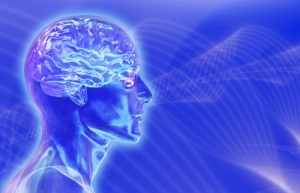The following is an excerpt from a teaching by Jetsunma Ahkon Lhamo called “Perception”
Think of the experiences that constitute our lives and then single them out. For instance, we certainly have the experience of form, and we have the experience of that which is formless. We have the experience of touch. We have the experience of taste. We have the experience of hearing. We have the experience of sight. We have the experience of smell. We have the experience of consciousness. We have the experience of the perception that one computes, such as the perception of time and space, as well as the perception of sense, such as internal sense. We have the perception of immediacy and distance, on both an emotional and a physical level. We have many gross and subtle perceptual avenues. Perception of some kind is an experience that we live with constantly.
Each one of these experiences is extremely compelling. It is compelling beyond what can be easily described. What I mean by compelling is not in the gross sense that we think of, like, for instance, an alcoholic might be compelled to drink alcohol or a really thirsty person might be compelled to drink water. It isn’t that kind of compelling. It’s more subtle, but it’s extreme, it’s very strong. For instance, if I pick up this object I am compelled to compute it. I can’t not compute it. I have to compute it. I pick it up, and I immediately have the experience of how big it is, of how hard it is compared to my hand, of how hot or cold it is compared to my body, compared to my temperature, my own body temperature. The sense of color compared to what? Compared to my own color. All phenomena are relative to my perception of self. It’s extremely compelling. The moment I have this kind of contact I immediately compute it in this most compelling way, and I can’t help myself. I can’t come between myself and that computation. The inability to come between yourself and that computation is the lack of spaciousness that is the karma of our minds. There is no space. There is the immediate fixation, compulsive computation of the relativity factor, the relativity between self and other.
Now, when I have any kind of awareness, subtle or gross, when I have any sense of time and space -such as I have a sense of being in this chair, being so far from you, of being halfway through my talk, it’s nighttime, these things – this kind of perception is actually a conglomeration of many different factors that have come together. It takes a tremendous amount of computation to have this kind of perception. It’s tremendously complicated. Usually, all of the senses are used. The air feels different. Not only is it dark but things sound differently. Things happen differently at night; usually you don’t come here this way during the day. Many different things must take place to compose – and I mean the word “compose “– the experience that I’m having.
There’s also a general awareness of a process of distinction, or a process of differentiation, that constantly occurs. You could call that process, that awareness, consciousness. Consciousness, as we understand it, is a specific consciousness. This consciousness that we have is a very specific function. You cannot have consciousness without, on some level, computing relativity because consciousness is specific awareness. By the way, you really should not use the word consciousness when you talk about the nature of mind. That’s done commonly, and it really is not correct. You should not think you want to move into Buddha consciousness or that you want to have primordial consciousness. Consciousness is specific, and the state that we speak of when we speak of the primordial wisdom state or when we think of the Buddha nature or when we think of an awareness that is non-specific, is pure and undifferentiated. It is free from any such contrivance as specific “-ness”.
Even when you have experience in your meditation that feels like it’s very vast and you’re congratulating yourself on how vast that experience just was and you’re so impressed with the vastness of your experience and you think that you’ve surely attained cosmic consciousness or something like that, under those conditions – probably especially under those conditions – the consciousness is extremely specific and computes relativity. Consciousness means that I am conscious. I am having this experience. To be able to have this experience requires consciousness.
So what is this consciousness a function of? This consciousness is a function of the assumption of self. One cannot have consciousness, or taste, or feeling, or any kind of subtle or gross perception, without the assumption of self. The assumption of self comes first. The main thing that’s confusing about this point is that you want to know, well, who is having this assumption? Who is having this consciousness? Who is having this taste? I am. I am conscious. I have feeling.
Anybody want to test feeling? We’ll give them the old Ahkön Lhamo test for feeling. If you think that you are beyond feeling, I have a pin somewhere on my undergarment that I can take out very quickly and there you go! I will show you that you have feeling.
So what is your answer? Who has consciousness? Who’s conscious? Who’s having this feeling? Your answer has to be, although you’re terrified to say it: I am. You are, aren’t you? Can you doubt that? Can you say that you can’t see? Only if you close your eyes, but they have to be your eyes that you close. You are conscious.
Copyright © Jetsunma Ahkon Lhamo. All rights reserved

